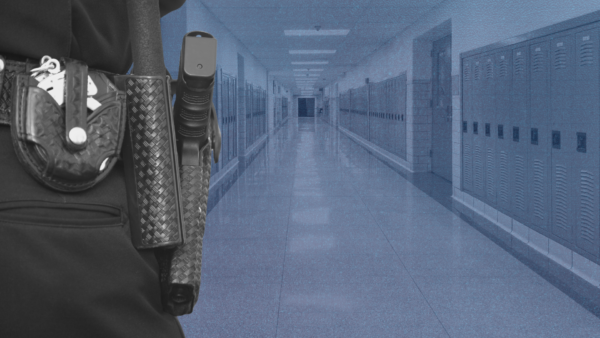FAYETTEVILLE, N.C. (July 10, 2024) — Southern Coalition for Social Justice (SCSJ) recommends Fayetteville keeps its schools police-free in a memo addressing the city’s proposal to replace school resource officers with members of Fayetteville Police Department ahead of a Thursday City Council vote.
After the Cumberland County Sheriff’s Office pulled its officers out of its schools a month ago, the city of Fayetteville is now considering bringing its own police officers in to fill the school resource officer, or SRO, roles at schools within city limits. However, SCSJ has found SROs do not create safer schools, and in fact create worse learning environments for some of the most vulnerable populations.
The findings of the memo include:
- More than 73% of SROs working in North Carolina schools had not completed the NC Justice Academy’s Advanced SRO Certificate Program.
- Only 32% had completed Crisis Intervention Team-Youth training, and a mere 27% had completed Mental Health First Aid for Youth.
- Despite researching showing increasing the number of counselors, nurses, psychologists, or social workers has been proven to keep students—and schools—safer and the American School Counselor Association (ASCA) recommending a minimum of one school counselor for every 250 students, North Carolina currently maintains a 1-to-343 ratio.
- Black students in Cumberland County are disproportionally referred to the juvenile justice system with more than 79% of school-related juvenile complaints involving Black students (despite Black students making up only about 45% of the population).
“Black, Brown, Indigenous, LGBTQIA+, and disabled students more often experience these types of surveillance school environments, which cause young people stress, trauma, and alienation and detract from their ability to learn and grow,” the memo states.
School districts across the country have made the decision to keep police out of their schools and have seen incredible results in keeping students safe. Fayetteville now has the chance to bring those solutions to North Carolina.
“School safety does not have to include SROs,” the memo says. “However, if SROs are employed, city council should ensure they are acutely aware of their roles as public safety responders, not armed disciplinarians.”
Should Fayetteville bring FPD officers into its schools, SCSJ recommends the following practices and procedures be included in any Memorandum of Understanding (MOU):
- Limit SRO-involvement to incidents that pose a serious and immediate threat of injury to an individual within the school community, not regular disciplinary action.
- Collect data for each school-based incident involving an SRO and implement a robust process for bringing student, staff, and parent/guardian complaints concerning SROs.
- Establish a stakeholder group of students, teachers, administrators, parents, and community leaders to monitor adherence to any MOU.
- Require robust training to acclimate SROs to an educational environment, inform them of the complex nature of adolescent socialization and development, and encourage them to use nonviolent means of conflict resolution.
- Establish clear expectations that arrest and referral to the juvenile justice system should be a last resort used only when other interventions are ineffective or when no other intervention will protect persons from injury.
###
Southern Coalition for Social Justice, founded in 2007, partners with communities of color and economically disadvantaged communities in the South to defend and advance their political, social, and economic rights through the combination of legal advocacy, research, organizing, and communications. Learn more at southerncoalition.org and follow our work on Twitter, Facebook, and Instagram.

